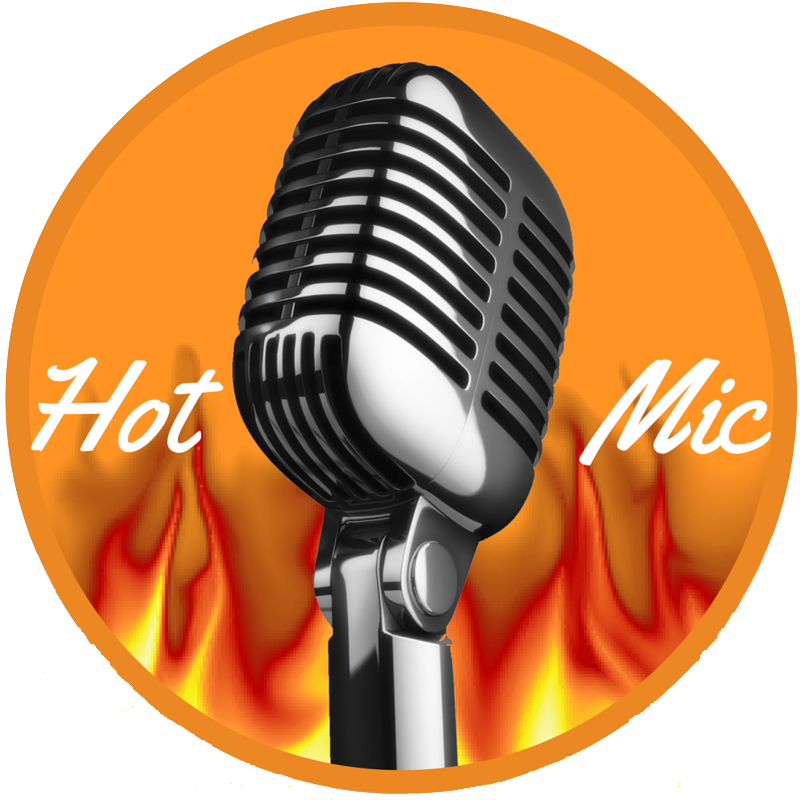
by Ben Rosenfeld
College Comedian and Author of the best selling book “Russian Optimism: Dark Nursery Rhymes To Cheer You Right Up”Dear Student Activities Organizer
Congrats! You’ve booked a comedian, you’ve picked a date, maybe you’ve even put up some flyers. But the show’s success or failure is still up in the air!After having performed for a ton of different colleges, and having lots of comedian friends who also perform at colleges, I’d like to offer some tips on how to make your upcoming college comedy show the biggest success it can be for your fellow students and for the performer you’ve chosen. Implementing these tips won’t cost you any extra money, but it will make for a much better show.
The Room Setup
Regardless of if you’re putting the show in a lecture hall, classroom, legitimate theater space, cafe area, cafeteria or janitor’s closet, the following tips will drastically make for a better show
Spotlight the stage and dim the rest of the room. Ideally you have stage lighting or a spotlight on the performer, but sometimes you can’t get that. But can almost always re position the room’s track lighting to only point at the performer. Either way, dim or turn off the other lights. Lighting helps to pull the shows focus on the performer and get people out of their own head and into the show. If the room is only florescent overhead lights, only keep the lights closest to the stage on, and turn off the rest.
Make sure there’s a working microphone and speaker. As well as a backup microphone. Especially if it’s a wireless mic. Almost every time I’ve used a wireless mic, something has gone wrong. It doesn’t matter how brand new the battery was, wireless mics are just ticking time bombs of tech issues.
Have a stage. Ideally it will be a permanent stage that’s already built into the room. But most colleges and universities have risers that they can put into any room. Even if it’s a temporary stage that’s just 6 inches off the ground, having a stage will subconsciously add more legitimacy to the performance.
Place the audience’s chairs as close to the stage as possible. And put the chairs tight together. This will create extra energy when they laugh and make the show better for the audience and the performer. Also try to avoid creating unnecessary aisles – aka don’t cause a fire hazard, but the more that the audience can sit as one organism, the more they’ll become one organism and the harder they’ll laugh. If you can avoid having tables, that will be even better. Tables cause students to take out their books and start studying during a show, which will ensure that neither studying nor laughing happens. If there’s 2 aisles (so 3 sections to sit in) and the show isn’t full, try to keep everyone in the middle section.
Also, you want to make the furthest away audience member as close to the stage as possible, so if you’re setting up in a long narrow room, put the stage in the middle of the room (thereby turning it into a wide, landscape orientation room) – that way you’ve cut the maximum distance from the performer in half.
Schedule a show time when most (if not all) students are done with classes. Each school ends classes at a different time, so you’ll know your institution better, but find a time when most of the student body isn’t in class. And avoid lunchtime shows whenever possible. People want comedy to unwind after a long day, not in the middle of the day while they’re shoveling food while cramming for their next exam.
Put the event in a separate room. Do everything in your power to ensure the room where the performance takes place does not have any other activities going on at the same time. I’ve performed in University Cafe/Bar areas, where people were just watching the football game and chatting on the far side of the space, and while there was 60 students who wanted a comedy show, another 15 people were watching the game and talking loudly. It was a distraction the whole time and it really hurt the show. Worst of all, the 15 were professors!
If you can’t avoid putting the show in a shared space, before the show starts, go around to the people who are clearly not there for the show, and let them know something along the lines of “Hey we have a great comedy show starting in a few minutes. We’d love for you to watch it, but if you’re not interested, that’s totally cool, can you just make sure to only whisper your conversation during the show or hang out in any other room on this campus? Or at least move to the furthest corner of the room possible? Thanks!”
The Pre-show
Seat people in the front rows first.
Seat front to back, and make sure the front fills in first.Nothing is worse than performing for a scattered audience. There’s no energy and no unity. Most comedians won’t make fun of or embarrass anyone, and having the front full makes for a much better show. If you only listen to one tip, this is the one!
Have some upbeat music playing as students enter.Positive, fast paced music puts people in a better mood. It will make the comedian’s job easier if people are already excited and happy. Avoid slow ballads and Adele at all costs!
Choose your announcements wisely. Decide whether to do announcements before or after the show. If doing them before the start, do all the announcements, then introduce the comedian. Don’t start introducing the comedian then make announcements.
If you have more than a minute of announcements, I highly recommend saying them after the performance. A long 5-10 minutes of announcements will kill the energy before the show starts.
Introduce the comedian properly. When introducing the comedian,say their name last. List their credits or whatever they would like you to say first, then say their name last. An audience will clap better and the start of the show will be smoother.
Correct Example:
Tonight’s featured comedian has a best selling book called “Russian Optimism” and has been appeared on FOX’s Laughs, please clap it up for Ben Rosenfeld.
Incorrect Example:
Ben Rosenfeld is your comedian for this evening. He’s been seen on FOX’s Laughs. Clap it up. He has Russian Optimism, a best selling book.
Don’t serve food during the show. If you’re going to have snacks or food, that’s great! Just don’t start opening pizza boxes in the middle of the show. Hide all the pizza in a different room! Don’t let that scent waft through the crowd! Nothing will make people lose focus faster than cheese and pepperoni! Either have food a half hour before show time (and promptly put it away right before starting) or don’t serve anything until after the comedian has finished.
Hydrate the performer!
Have at least 3-4 water bottles ready for the comedian. We like to make sure our throat isn’t dry before talking for an hour straight.
Specify language restrictions early!
If your college requires the performer to avoid certain language or topics, let them know early! At least a week in advance. While we can work squeaky clean when needed, it is not our default setting, so we like to have a few days to plan accordingly. The worst thing you can do to a performer is to tell them about language restrictions five minutes before show time. We want to work with you and ensure you’re happy with the end result, so give us time to plan for those adjustments. If at all possible, I recommend not having language or topic restrictions. Most comedians are seasoned enough to feel out a crowd and know to pull back when they’ve taken something too far.
The Marketing
You know your school’s social media habits way better than me, but here’s some general thoughts:
Best case scenario, each email/tweet/instagram/facebook post you do will only be read by 10-20% of people. While you should still do this, don’t rely on virtual marketing alone.
People rarely plan anything more than 2 weeks in advance. So send an announcement two weeks before, one week before, three days before, one day before, and the afternoon of the show.
Announcing the comedy show at previous social events helps a lot.
The most underrated marketing tool is still flyers.Especially flyers in places where people are waiting around with nothing to do – like near elevator buttons, dining hall food lines and even bathroom stalls.
When making flyers, keep the text BIG and minimize unnecessary information. “FREE COMEDY SHOW” and the “DAY/DATE/TIME/LOCATION” should be big enough that you can read it from 10 feet away. The only text you need on a flyer is: Event name, day/date/time, location and performer’s name and photo or a fun graphic. Unless there’s free food after. Add that in. Always promote free food after!
Good Example:
FREE COMEDY SHOW (size 72 font)
[big photo here]
featuring comedian Ben Rosenfeld (size 24 font)
and free hot dogs! (size 24 font)
Fri Sep 2 @ 9PM Scott Hall (size 72 font)


